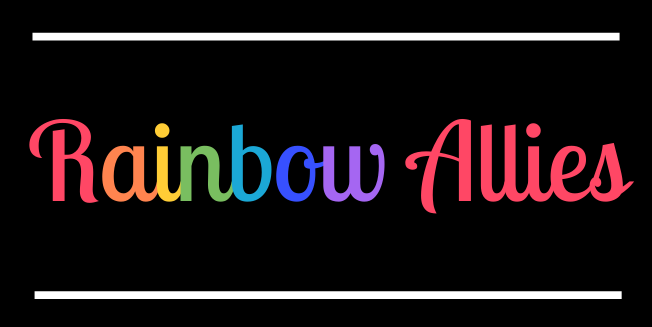LGBTQUIA+ Inclusion - Getting Started

- Do you want to provide an inclusive culture for the LGBTQUIA+ community in your department?
- Do you want to improve your knowledge to enable you to support the community and break down barriers to LGBTQUIA+ Inclusion and acceptance?
- Do you want to be an effective ally?
The resources on this page will enable you to get started, have the courage to start conversations, and ensure an open mindset to listen to people's experiences.
LGBTQUIA+ History Month
LGBTQUIA+ History MonthLink opens in a new window is observed throughout February, it is an annual celebration of lesbian, gay, bisexual, and trans history, and the history of the LGBTQUIA+ rights and related civil rights movements.
Terminology
Terminology relating to LGBTQUIA+ identities and experiences can change at a phenomenally fast pace. The use of specific terms becomes contested, and new best practice terminology emerges. The use of certain terms also depends on individual preference and the terminology they feel best represents their own identity and experience.
This Introduction to Key LGBTQUIA+ Terms sets out some key terminology in relation to LGBTQUIA+ identities and experiences, including outdated terminology and sites of contest. It is not exhaustive, but additional terms can be requested via .
Find out more about LGBTQUIA+ Inclusive Language.
Pronouns
Wearing a pronoun badge (and encouraging others to) helps normalise the non-assumption of pronouns, which reduces the frequency with which trans people are misgendered. It's therefore an effective act of allyship with the trans community.
You can find out more about pronoun badges - including where to get them - on the Queering University webpages.
Support
- “I’m part of the LGBTQUIA+ community” and “I’m part of the trans community” coming out tools for use by the LGBTQUIA+ community.
- An LGBTQUA+ support directory.
- Resources for those supporting someone who is LGBTQUIA+.
Bi Inclusion
Bi is an umbrella term used to describe romantic and/or sexual attraction towards more than one gender of people. People under the ‘bi umbrella’ may describe themselves using one or more of a wide variety of terms, including but not limited to: bisexual, bi, pan, and queer.
Take a look at our top tip for bi inclusion.
Self-Education
Self education is key to learning more about the issues and barriers faced by the LGBTQUIA+ community. Use the links below to access online training videos and e-learning courses.
- E-Learning:
- Video-based learning:
- Lived experience short videos - Non-Binary:
- What it means to be non-binary.
- Defining moments.
- How did being non-binary affect you growing up?
- When did you first meet another non-binary person?
- Reactions of friends, family and employer.
- Common misconceptions.
- What kind of discrimination can non-binary people face?
- Have you personally had any negative experiences?
Living Positively
We're supporting everyone to live, work, and study positively at Warwick. Access support for HIV+ staff and students, information on HIV testing and prevention, and develop understanding and allyship on the Living Positively webpages.
Rainbow Allies

The Rainbow Allies programme exists to empower all members of our community to create an open, safe and inclusive environment for all LGBTQUA+ colleagues, students, and visitors at Warwick.
You will be required to:
- Actively listen - really listen - be open-minded, be aware of your own bias, be willing to challenge your predjudices.
- Create an open, honest and safe environment to enable conversations.
- Be prepared to self-educate, rather than relying on the LGBTQUA+ community to educate you.
- Be prepared to challenge inappropriate conversations, and be an active bystander.
- Get involved in event planning, attend events, and challenge yourself.
The Rainbow allies programme is currently under review and therefore registration is not currently available.
Ally Continuum

- Apathetic - No understanding of the issues.
- Aware - Knows basic concepts, not active on behalf of self or others.
- Active - well informed, sharing and seeking diversity when asked/prompted.
- Advocate - committed, routinely and proactively championing inclusion.
Lesbian Visibility
Lesbian Visibility Week takes place annually in May. The aim is to celebrate lesbians and show solidarity with all LGBTQI women and non binary people in the community.
Find out more about Lesbian Visibility and Inclusion.
Best Practice
- Do you use Gender Neutral Language?
- Do you use assumed pronouns when minute taking based on a person's gender expression?
- Have you checked your department's web pages to ensure they are inclusive?
- Are you aware of the locations of Gender Neutral facilities and include these when hosting an event/meeting/conference?
- Do you include your pronouns on your email signature and when you introduce yourself at meetings?
Trans inclusive teaching
Take a look at the trans-inclusive teaching guidance.
This resource provides a starting point for staff and students wishing to make the student learning experience inclusive for trans & gender diverse students.
Data collection
This 'Gender and LGBTQUIA+ Data Collection Best Practice' resource will provide you with information that cover best practices for data collection on gender, sexual orientation, trans identity, and title.
With thanks to WIHEA for providing these resources.
Solo
Solo was developed in response to the challenges estranged students face in higher education. The project connects students with support and community, educates supporters, researches estranged students' experiences, and improves support for estranged students, with the ultimate goal of improving estranged students' experiences at Warwick.
